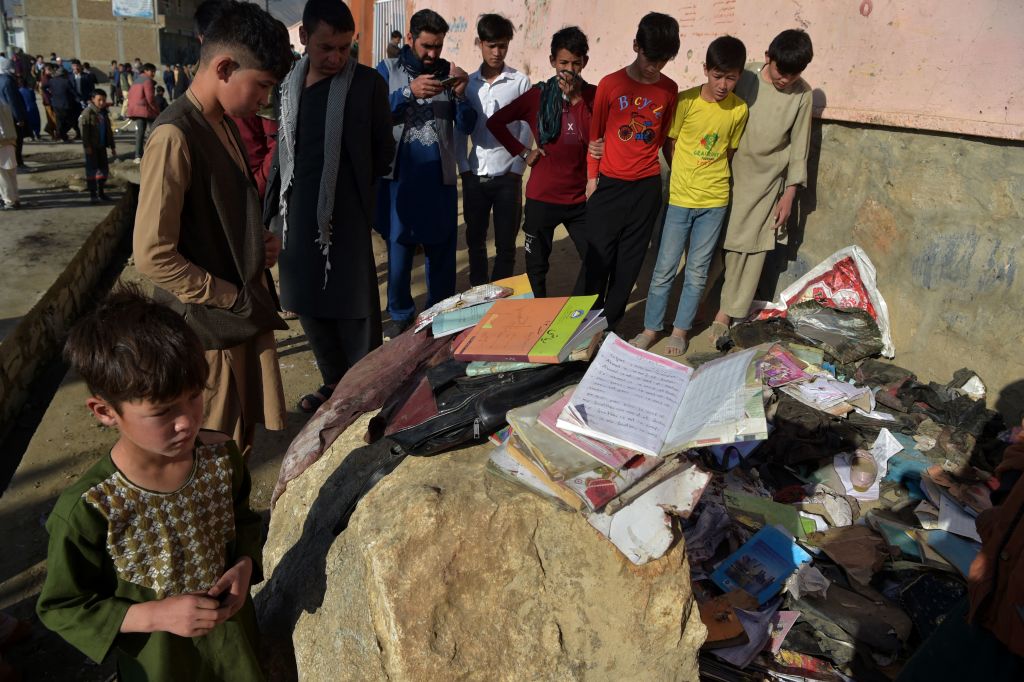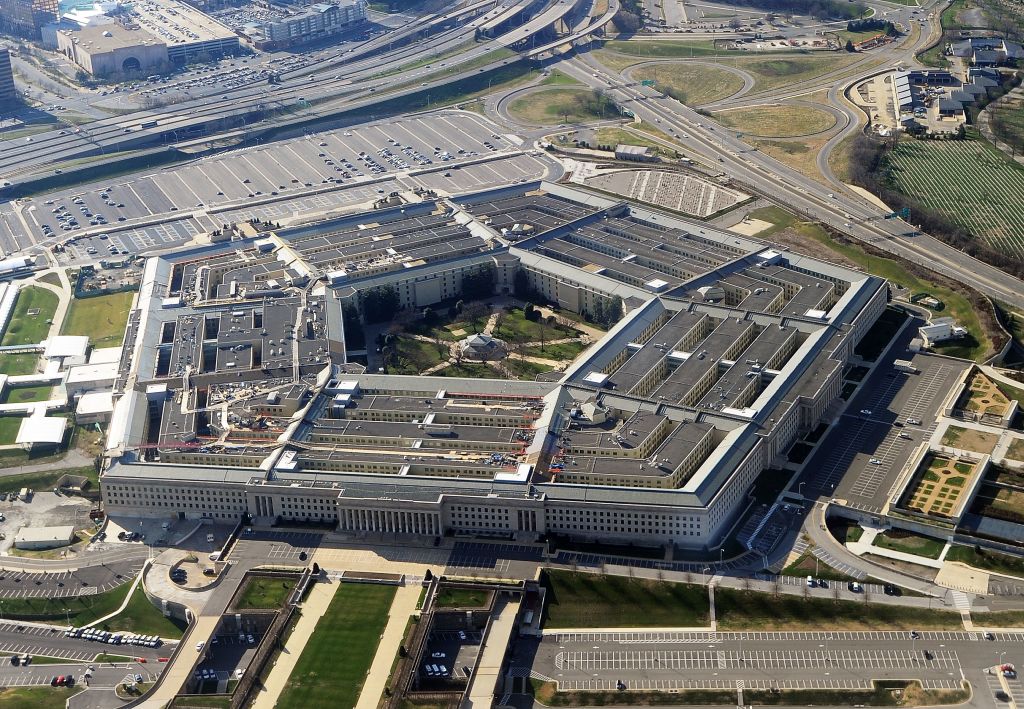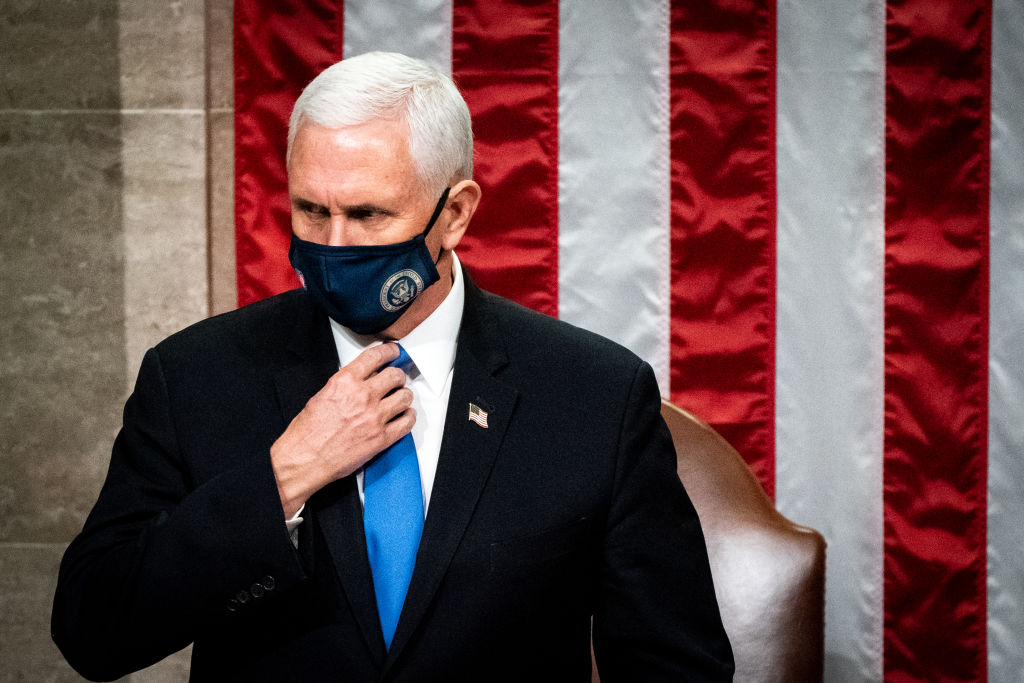The case for private militaries
Mercenaries get a bad rap, but they may have a role to play in at least one kind of conflict


A free daily email with the biggest news stories of the day – and the best features from TheWeek.com
You are now subscribed
Your newsletter sign-up was successful
The news that ex-Blackwater guards received multi-decade sentences in connection with a 2007 shooting would seem to cement the popular narrative about private military contractors: rogue, out-of-control forces who think they are above the law. It would seem that the last thing we need is more of them.
And yet, if anything, the 21st century might be the best time for a return to private militaries. Let me explain.
The first thing to note is that private militaries have always existed, in one form or another. Greek city states and the Roman Empire relied extensively on mercenaries. They were a popular feature of medieval and Renaissance warfare — and, in some cases, like Northern Italy, practically the only one. The decline of the mercenary army coincides with the rise of the nation state — and particularly the invention of total war, the most murderous concept invented by man. Of course, mercenaries aren't going to engage in total war — that would risk too many assets. It takes a state to endeavor something like that.
The Week
Escape your echo chamber. Get the facts behind the news, plus analysis from multiple perspectives.

Sign up for The Week's Free Newsletters
From our morning news briefing to a weekly Good News Newsletter, get the best of The Week delivered directly to your inbox.
From our morning news briefing to a weekly Good News Newsletter, get the best of The Week delivered directly to your inbox.
Indeed, part of what makes mercenaries so useful is precisely this prudence. Mercenaries are businessmen. That means that, all else being equal, they should be careful to prevent casualties and damage to their equipment, since it is their own money on the line.
But what makes mercenaries so interesting in the 21st century?
A simple fact: Like it or not, for the foreseeable future, the U.S. is going to be involved in dirty, small arms wars all over the world. Somalia, Yemen, Libya, Iraq... Isolationists might pine and scream for a time when the U.S. just ignores the rest of the world, but the simple fact of the matter is that the U.S. is the only existing or plausible guarantor of global security. And this security is increasingly threatened by insurgencies and small arms wars.
Another simple fact is that, for political reasons, the U.S. is extremely reluctant to allow soldier casualties. The entire war in Afghanistan killed less U.S. service members than some days of World War II, and yet that historically tiny number of casualties caused a big drop in popularity for the war. The fact of the matter is that the U.S. wants to fight wars without casualties.
A free daily email with the biggest news stories of the day – and the best features from TheWeek.com
And that creates a problem, because small arms wars really can only be fought with foot soldiers. Drones and F-22s aren't going to do it. At some point, you need to put boots on the ground.
You can see the dilemma. The U.S. is going to be involved in situations where it needs to put boots on the ground somewhere, yet the U.S. is never going to want to do it.
The solution is obvious. The American public doesn't react to the death of private security guards the same way that it reacts to the death of uniformed Marines (even if the private security guard used to be a uniformed Marine).
Mercenary armies carry much less overhead than the ginormously expensive U.S. military, and would cost less. And while it might be the case that some private contractors have committed atrocities, I'm aware of no evidence to suggest contractors commit more atrocities than uniformed soldiers.
Back when he ran Blackwater, its notorious founder Erik Prince suggested building a brigade-sized force that could have stopped the genocide in Sudan. Politics made it impossible to send a U.S. or a U.N. force, while countless people died in horrible circumstances. He called it "relief with teeth." It was a good idea then, and it's a good idea now.
Pascal-Emmanuel Gobry is a writer and fellow at the Ethics and Public Policy Center. His writing has appeared at Forbes, The Atlantic, First Things, Commentary Magazine, The Daily Beast, The Federalist, Quartz, and other places. He lives in Paris with his beloved wife and daughter.
-
 The ‘ravenous’ demand for Cornish minerals
The ‘ravenous’ demand for Cornish mineralsUnder the Radar Growing need for critical minerals to power tech has intensified ‘appetite’ for lithium, which could be a ‘huge boon’ for local economy
-
 Why are election experts taking Trump’s midterm threats seriously?
Why are election experts taking Trump’s midterm threats seriously?IN THE SPOTLIGHT As the president muses about polling place deployments and a centralized electoral system aimed at one-party control, lawmakers are taking this administration at its word
-
 ‘Restaurateurs have become millionaires’
‘Restaurateurs have become millionaires’Instant Opinion Opinion, comment and editorials of the day
-
 Bombing at girls' school in Kabul kills at least 50, including students
Bombing at girls' school in Kabul kills at least 50, including studentsSpeed Read
-
 Garland says DOJ is 'pouring its resources' into stopping domestic terrorists 'before they can attack'
Garland says DOJ is 'pouring its resources' into stopping domestic terrorists 'before they can attack'Speed Read
-
 Suspected Israeli cyberattack on Iranian nuclear site complicates U.S.-Iran nuclear deal talks
Suspected Israeli cyberattack on Iranian nuclear site complicates U.S.-Iran nuclear deal talksSpeed Read
-
 North Korea fires 2 ballistic missiles into sea
North Korea fires 2 ballistic missiles into seaSpeed Read
-
 U.S. airstrikes target Iranian-backed militia facilities in Syria
U.S. airstrikes target Iranian-backed militia facilities in SyriaSpeed Read
-
 Rochester police who killed Daniel Prude during mental health crisis won't face charges
Rochester police who killed Daniel Prude during mental health crisis won't face chargesSpeed Read
-
 Mike Pence's 'nuclear football' was also apparently at risk during the Capitol siege
Mike Pence's 'nuclear football' was also apparently at risk during the Capitol siegeSpeed Read
-
 Trump publicly attacked Pence during the Capitol riot knowing Pence was in trouble, GOP senator suggests
Trump publicly attacked Pence during the Capitol riot knowing Pence was in trouble, GOP senator suggestsSpeed Read
